By Lori Hanson
For the millions of individuals affected by eating disorders, (anorexia, bulimia or binge eating) food is a constant obsession. Life is consumed with controlling or fanticising about food intake. Let’s take a look at the lives of three fictitious characters to fully understand this phenomenon.
Take Anna the anorexic. For Anna, her life is filled with stress, anxiety and concern about what she puts in her body, how often she puts food in her body and how she can control her feelings associated with eating. For Anna, she gains a feeling of superiority in being able to control her food intake, ignore the hunger pangs, weakness, headaches and other serious physical symptoms that plague her. She has pride in her level of determination that will help her reach her ultimate goal. To be thin. Perhaps to emulate her favorite super model, actress or other celebrity. There is nothing more important than reaching her goal and food is evil, her enemy. She can’t indulge in full meals or she will gain weight. So Anna develops a series of rituals. Her rituals include a schedule for food intake. What days she will eat limited quantities of food and what days she will only drink water or tea and won’t eat. Anna has no concept of food as fuel. Food is an obsession she has to control.
Then there’s Brenda the bulimic. Brenda’s life is a chronic cycle of abuse. When she gets upset, hurt, disappointed, feels lonely, depressed, stressed or anxious she eats. When she starts she can’t stop. Often her binges include vast quantities of sweets, carbohydrates and junk food. After a binge she is miserable and can’t move. Brenda doesn’t purge by throwing up, she uses strict diets and excessive exercise to recover from her binges. Once the cycle is complete she spends the next few hours and days berating herself for her behavior. Brenda is often lethargic from the overdose of carbs and lack of nutrition her body so desperately needs. There are certain foods she can’t keep in the house because they are trigger foods for her. Meaning she’ll eat the whole box of cookies, bag of chips, pizza or carton of ice cream in one sitting. Her only possible method of control is not to purchase these foods. Unwilling to gain weight, her world is consumed trying to control her food intake and compensating to regain control when she binges. Food is an obsession and a constant struggle based on her emotional state.
Lastly there is Belinda the binge eater. Belinda, like Brenda has a constant battle with food. She spends much of her time thinking about what she’ll eat and keeps her cupboard full with her favorite binge foods. However, Belinda doesn’t control the weight gain. She can’t stop the binges and doesn’t have the desire or ability to counteract them with diets or exercise. She gave up long ago. She’s destined to be obese. After a binge she too experiences serious physical discomfort leading to extreme lethargy from carb overload. Belinda has many health issues caused by ingesting so much food in one sitting and from the extra 100 pounds she carries. For Belinda, food is an obsession, it’s the highlight of her day.
Individuals who suffer from eating disorders as is well documented struggle with a combination of psychological issues. In addition they experience serious health problems as a result of the abuse their bodies take from either the lack of food or too much. Simply stated their bodies suffer huge nutritional deficiencies. These cause cravings for Anna, Belinda and Brenda and feed into their cycles of abuse.
Is it possible for someone suffering from eating disorders to get to a place of viewing food simply as fuel for their bodies? Yes! In order to fully recover five areas must be addressed:
1 – Identify and understand the causes of the eating disorder
2 – Improve self-esteem
3 – Embrace the power of the sub-conscious to eliminate negative self-talk, self-defeating behaviors and beliefs. And to create healthy behaviors and beliefs
4 – Balance nutrition and supplements to create a healthy chemical balance in both mind and body
5 – Improve mental and physical health with body work to reconnect the mind and body. This enables the individual to “be present” and stay in the moment
This alternative approach is incredibly powerful to help individuals locate and take back their personal power. This is key for those who use food to block out reality as a means of survival. They must again connect with their authentic self. This is a critical step in healing–to find and embrace who you are. For Anna, Belinda and Brenda they have no clue who they really are or what they want. They are so numb and out of touch, their authentic self is far removed from their day-to-day existence. How can you love yourself if you don’t know who you are?
Although many individuals go in and out of traditional treatment programs and suffer for years, recovery from an eating disorder is possible. And with recovery comes the freedom from obsession and peace in viewing food as fuel for your body. A process much easier to stomach once your mind and body are in balance!
Get help to make this shift today.
©2008


Thank you for this. I stumbled upon this post and needed to read this. Really, thank you!!!